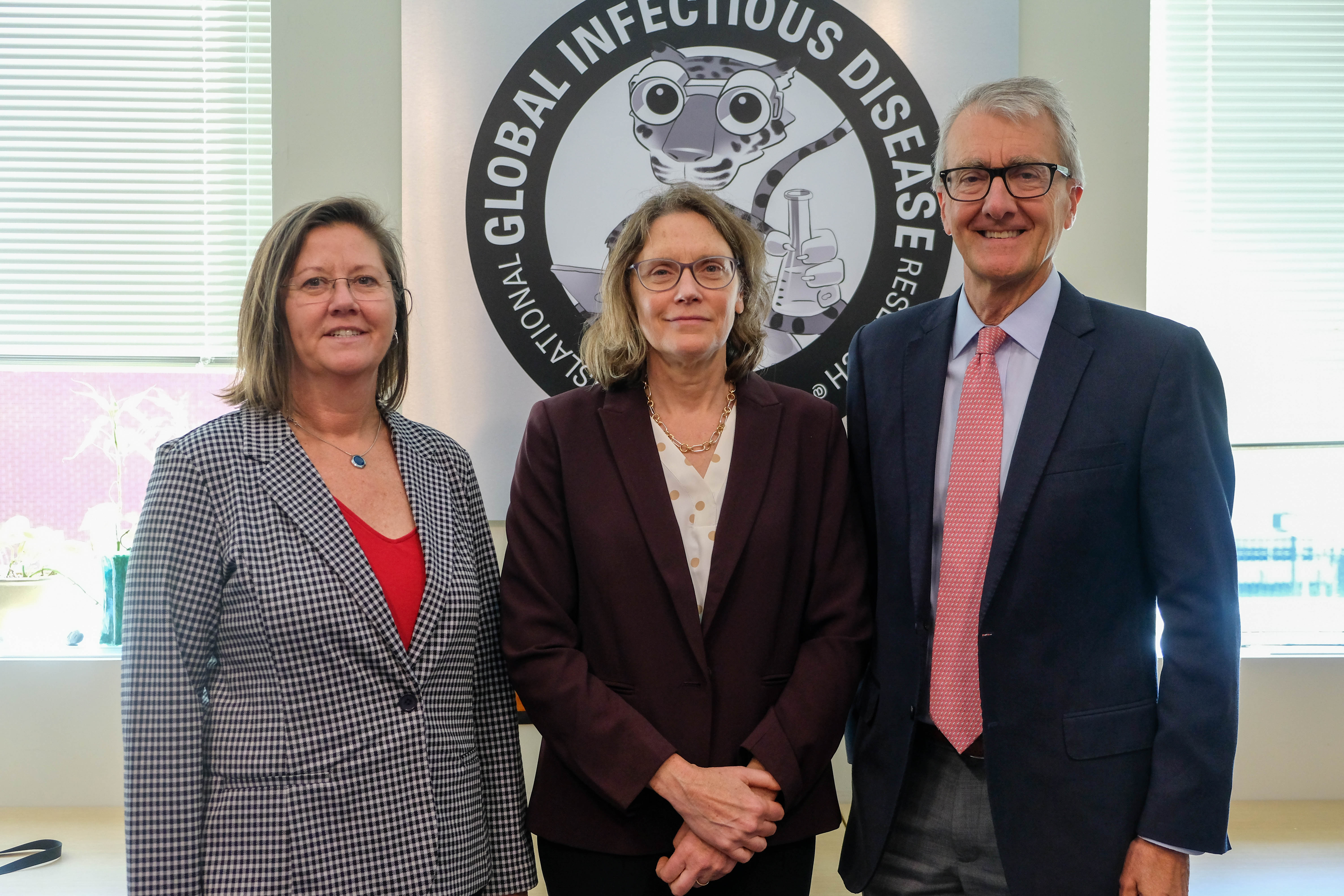The Larner College of Medicine at the University of Vermont is pleased to announce that their Translational Global Infectious Disease Research Center (TGIR), Center of Biomedical Research Excellence (COBRE) has received Phase II funding from the National Institute of General Medical Sciences (NIGMS), National Institutes of Health (NIH).

TGIR COBRE Receives Phase II Funding
The Larner College of Medicine at the University of Vermont is pleased to announce that their Translational Global Infectious Disease Research Center (TGIR), Center of Biomedical Research Excellence (COBRE) has received Phase II funding from the National Institute of General Medical Sciences (NIGMS), National Institutes of Health (NIH). This award provides an additional five years of further funding for this successful research program, which began in 2018.
The $11.5 million award supports the research career development and research projects of a growing cohort of junior faculty focused on globally important infectious diseases impacting human health. These faculty receive mentoring, academic support to develop their research expertise, and skill development to advance their research careers. This grant also aims to further develop and strengthen global infectious diseases research at the Larner College of Medicine and UVM; grant funds include support for two research cores, team of mentors, a visiting scholar program, a weekly seminar series, and pilot awards for up-and-coming junior faculty. The TGIR has engaged faculty from the Larner College of Medicine, the College of Engineering and Mathematical Sciences, the Gund Institute for the Environment, and the College of Agriculture and Life Sciences.
"To me, this grant is really about our junior faculty. They gain an academic home, colleagues to collaborate with, and essential mentoring,” stated Professor and Chair, Department of Microbiology and Molecular Genetics and Principal Investigator Beth Kirkpatrick, “The data is clear: this support significantly boosts their research success and independence. Additionally, the grant contributes to our institution's overall research in globally important infectious diseases, which is a key priority for us."
The TGIR’s research cores are Human and Population Research (HPR core) as well as Computational Modeling (MCP core); both provide advanced services for the growing team of TGIR investigators to expand the depth and expertise of their research. The UVM Vaccine Testing Center (VTC) offers additional expertise support to TGIR faculty.
The TGIR-COBRE’s Phase I award supported the career development of seven internal junior faculty (research project leaders), funded nine pilot awardees, and recruited four additional faculty to join the team. In Phase II, the grant supports multiple junior faculty (Drs. Bernstein, Bruce, Crothers, Manjumbar, Nowak, Openshaw), plans to recruit an additional three external faculty, and additional pilot awards. Several of the junior faculty supported in Phase I have moved into leadership roles in Phase II, including Drs. Laurent Hébert-Dufresne, Benjamin Lee, and Sean Diehl.
The overall mission of the TGIR COBRE is to decrease the burden of global infectious diseases in both United States and economically disadvantaged countries. The breadth of its research extends from basic science discovery to disease surveillance and network epidemiology. The research projects of four junior faculty are discussed below.
By leveraging existing strengths at the University of Vermont, the TGIR-COBRE works to bridge the gap between the broad biologic and quantitative data fields of biomedical research to create a robust, well-organized academic home for faculty researching global infectious diseases. The Phase II award will also focus on expanding international collaborations, and large multi-disciplinary grants with UVM.
Research Project Leaders’ (junior faculty) Projects
Jessica Crothers, M.D., Assistant Professor in the Department of Pathology and Laboratory Medicine
Project: “Mucosal immunity to polio virus is modified by the gut microbiota, dependent upon cytotoxic cellular responses and can be enhanced via intradermal administration of a mucosally-adjuvanted inactivated polio vaccine (dmLT-IPV).” Crothers is studying the role of T cells and the gut microbiota in reducing viral shedding following polio vaccination. She is currently leading two polio vaccine trials in conjunction with the UVM Vaccine Testing Center with the hope of developing safer, more effective polio vaccines to support global polio eradication efforts.
Emily Bruce, PhD., Assistant Professor in the Department of Microbiology and Molecular Genetics
Project: “Virological and immunological detection of SARS-CoV-2 exposure.” Bruce is pursuing improved COVID-19 diagnostic methodology, investigating the hypothesis that the presence of SARS-COV-2 replicative RNA species can be used to distinguish the presence of infectious virus from residual viral RNA. She pursues the morphological and genetic factors that control influenza and SARS-CoV-2 infectivity, studying aspects of the virus-host system.
Dev Majumdar, Ph.D., Assistant Professor in the Department of Surgery
Project: “Evaluation of iDMV-1.0: A Single Dose Self-Amplifying Vaccine.” By working at the interface of RNA biology, vaccinology, and B cell immunology, Majumdar seeks to develop next generation mRNA vaccine platforms. This research's objective is to create a booster-free mRNA vaccine that delivers durable humoral and cellular immunity to foster greater vaccine uptake in global settings.
Sarah Nowak, Ph.D., Department of Pathology and Laboratory Medicine
Project: “Perception of risk, behavior, and COVID transmission dynamics." Focusing on social media data from Brazil, Nowak will investigate the hypothesis that vaccine hesitancy within a community is strongly influenced by prevailing cultural scaffold beliefs. Utilizing agent-based modeling, she will explore the association between COVID-19 conspiracy beliefs and childhood vaccine hesitancy and investigate how receipt of anti-vaccine versus pro-vaccine information influences decision making.